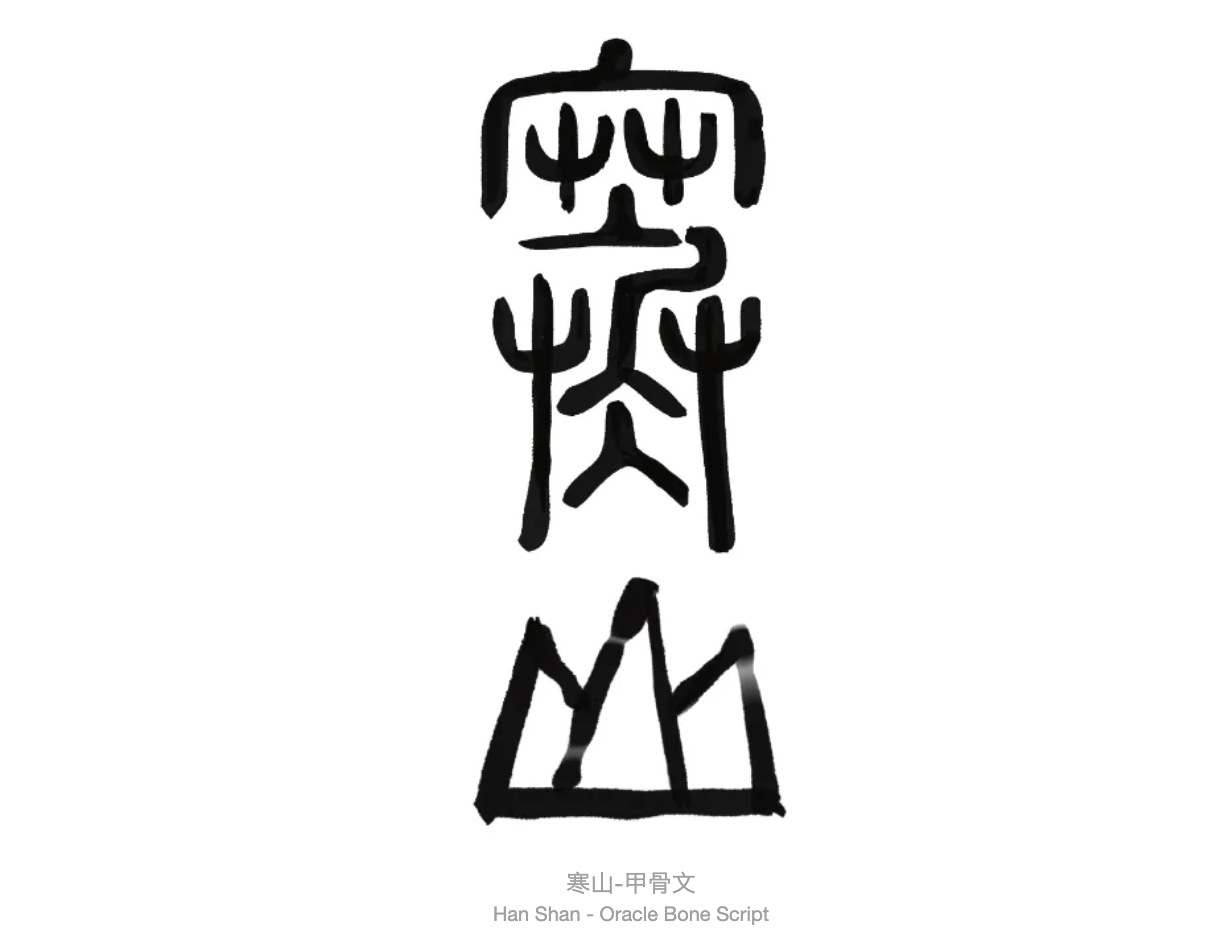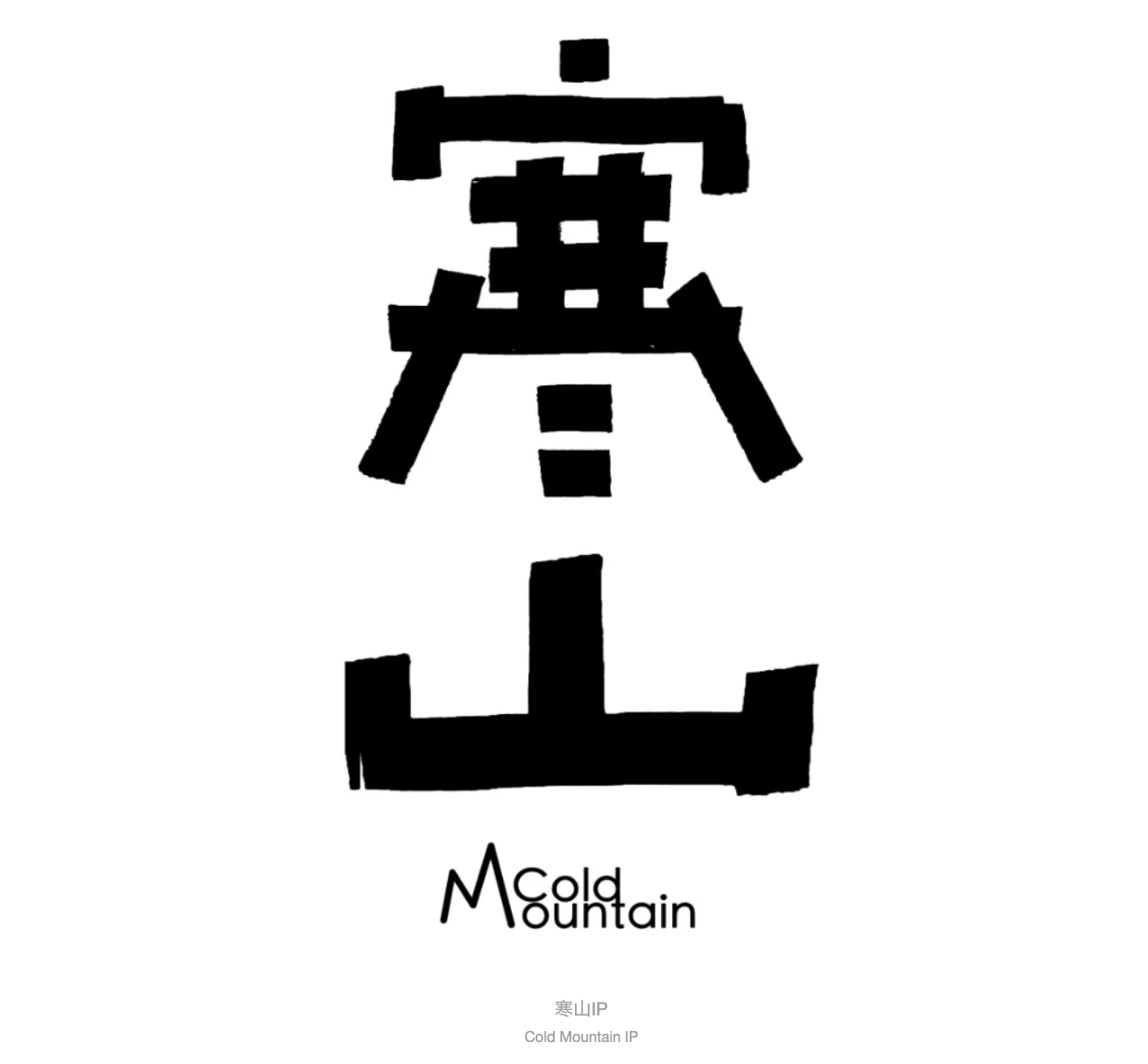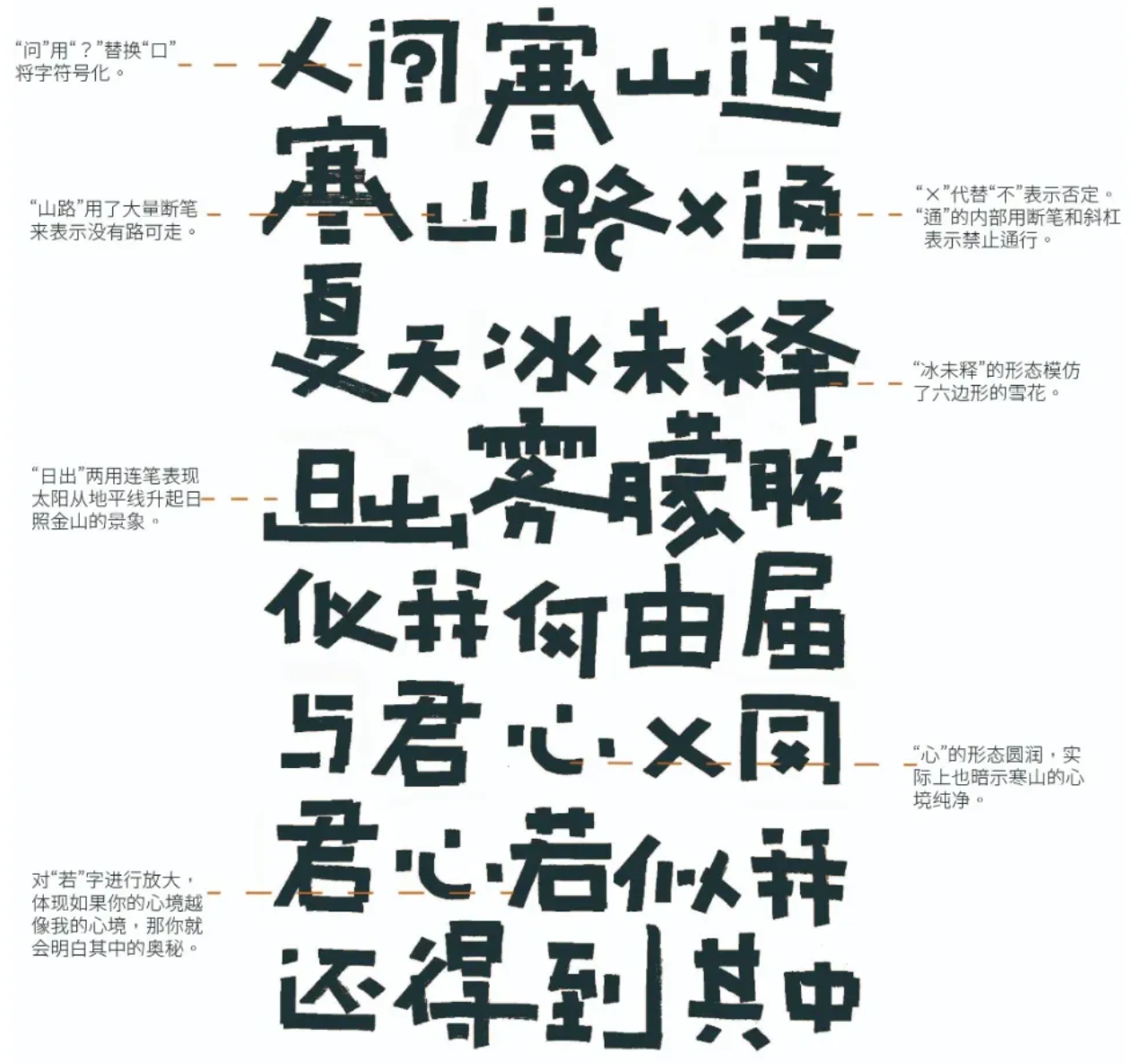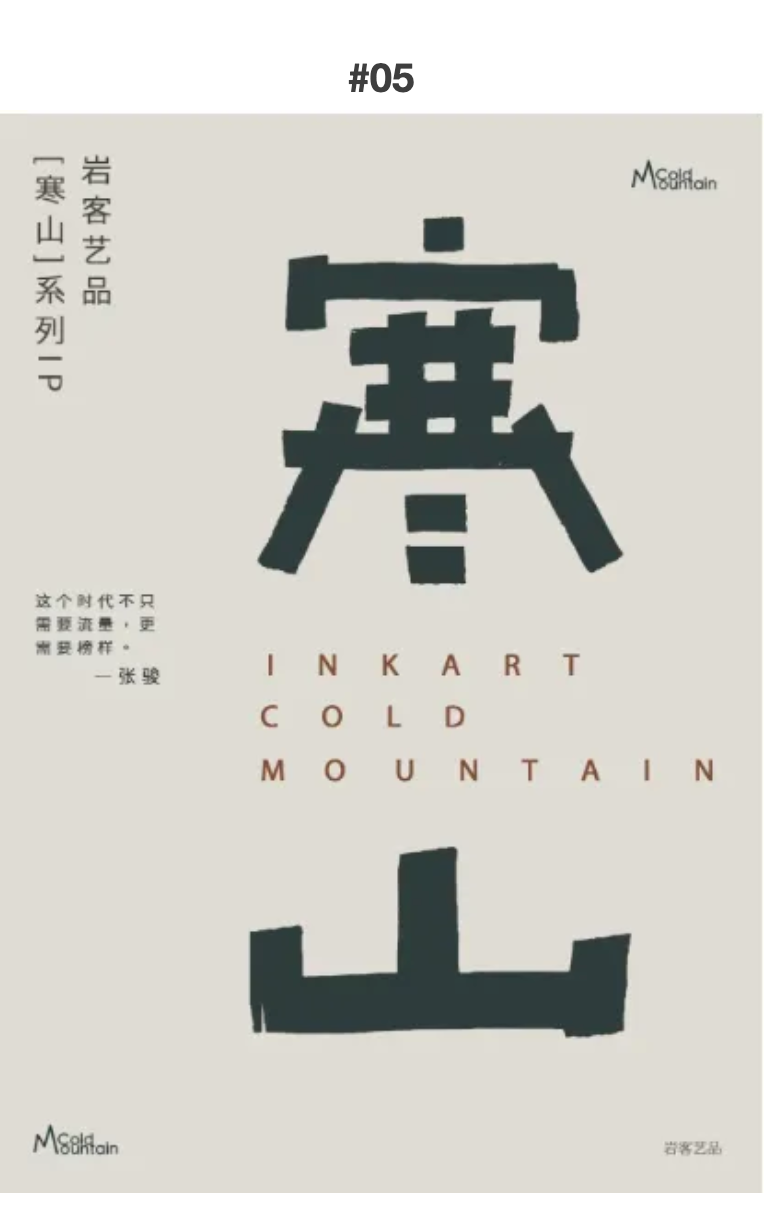网络


唐朝,上乘隋代乱世,整个社会呈现开放包容的局面。诗歌,成为国家一种文化形态的内在驱动力。寒山以诗僧的身份活跃于唐朝。年轻时仕途坎坷,后期隐居于寒山,并创作了大量“寒山诗”。“寒山诗”也以通透清新区别于李白等人的主流诗歌流派,并在之后的朝代一直被其他文人所仿写。北宋时期传入日本,备受追捧,经久不衰。
During the Tang Dynasty, following the chaotic period of the Sui Dynasty, society displayed an open and inclusive atmosphere. Poetry became an intrinsic driving force of the nation's cultural form. Han Shan was active during the Tang Dynasty as a poet-monk. In his youth, his official career was fraught with difficulties, leading him to later retire to Han Shan , where he composed a large number of "Cold Mountain Poems." These poems, distinguished by their clarity and freshness, differed from the mainstream poetic styles of poets like Li Bai, and they continued to be emulated by other literati in subsequent dynasties. During the Northern Song Dynasty, they were introduced to Japan, where they were highly acclaimed and enjoyed enduring popularity.
二战后,西方人民陷入虚无、逃避现实的思想泥潭,在这种思想的影响下,诞生了“嬉皮士”运动,涌现出许多思想运动领导者。加里·斯奈德便是“垮掉派”中仅存的少数硕果。他前往中国寒山亲身体验寒山的诗境,并将寒山的诗结合自己的感受翻译成为了英文,伴随“垮掉的一代”盛行于欧美。
After World War II, Western people fell into a quagmire of nihilism and escapism. Under the influence of these ideas, the hippie movement emerged, along with many thought leaders. Gary Snyder was one of the few remaining members of the "Beat Generation." He traveled to Han Shan in China to personally experience the poetic realm of Han Shan, and he translated Han Shan's poems into English, combining them with his own insights. These translations gained popularity alongside the "Beat Generation" in Europe and America.

读寒山诗可知,寒山一生坎坷,由追求功名而转向寄情山水净化身心,达到天人合一的境界。常人遵循本心已然难事,天人合一更为难得。但寒山在阅历了“天地有大美而不言”之后,从追求天人合一转变为与自我合一,与命运和解。我们是谁?我们从哪来?我们到哪去?寒山在诗里给出了他对这个哲学问题的答案,超脱物化,难能可贵。
Reading Han Shan's poems reveals that his life was full of hardships. He shifted from pursuing fame and fortune to finding solace in nature, purifying his mind and body, and achieving a state of harmony between heaven and man. For ordinary people, following one's true heart is already difficult; achieving unity with heaven and man is even more rare. However, after experiencing the profound beauty of the universe in silence, Han Shan transitioned from seeking unity with heaven and man to achieving unity with himself and reconciling with his fate. Who are we? Where do we come from? Where are we going? In his poems, Han Shan provides his answers to these philosophical questions, transcending materialism, which is truly commendable.
加里·斯奈德对寒山的翻译并不仅仅只是字面上机械的翻译,也有别于学术上过分专业的翻译。更像是加里·斯奈德站在寒山洞口去体验、感受、理解、思考寒山。他们的对话跨越了时代、年龄、国籍。你没有必要讲清他们二人到底是谁成就了谁,于我们观者而言,更像是在倾听二人的饭后闲谈。
Gary Snyder's translation of Han Shan's poems is not merely a literal, mechanical translation, nor is it an overly specialized academic one. Instead, it feels as if Gary Snyder is standing at the mouth of Han Shan's cave, experiencing, feeling, understanding, and contemplating Han Shan. Their dialogue transcends time, age, and nationality. There's no need to clarify who exactly contributed more to the other's legacy. To us, the audience, it feels more like eavesdropping on a casual after-dinner conversation between the two.

2008年,艺术家张骏给未来,也就是现在他创立这个品牌起了一个名字“岩客艺品”。其中“岩客”两字在古文中特指像寒山一样,这类隐居山林的诗人,有想法,有魄力,有行动,一心渴望寻求事物的本真。遵循本真本心是艺术家张骏视为为人处事最重要的一项原则。寒山的不急不躁,不卑不亢,不悲不喜,不争不浮,不断指引张骏作出每一次应该作出的正确选择。此次大话寒山系列作品,也是艺术家张骏沉淀多年后,向自己的榜样寒山致敬的一个系列作品。 “这个时代不只需要流量,更需要榜样。”张骏如是说到。
In 2008, the young Zhang Jun named the brand he would later establish "Ink Artworks." In ancient texts, the term "Ink" specifically referred to poets like Han Shan, who lived in seclusion in the mountains, possessing ideas, courage, and the drive to seek the true nature of things. Following one's true self is the most important principle for Zhang Jun in both life and work. Han Shan's calmness, humility, and emotional steadiness continually guide Zhang Jun to make the right choices. The "Talking About Han Shan" series is a collection of works that Zhang Jun, a young artist, created after many years of contemplation, paying homage to his role model, Han Shan. "This era needs not just popularity, but also role models," Zhang Jun stated.

大话寒山子系列的作品内容全部取材于寒山的诗。寒山的诗直白通俗,对于他的诗来说解读是多余的。作品中的每一句内容的都根据对寒山语境的理解和对寒山的认知进行符号化的转写,通过符号这种人类之间互通的认知能力,让寒山诗变得更为通俗易懂。
The content of the "Cold Mountain series"is entirely derived from Han Shan's poems. Han Shan's poetry is straightforward and plain, making interpretation unnecessary. Each line in the works is a symbolic transcription based on an understanding of Han Shan's context and his philosophy. By using symbols, which are a universal means of human communication, Han Shan's poems are made more accessible and easier to understand.


“寒”,在甲骨文中像一个人睡在屋下保暖的草褥里,而山在甲骨文中则是对山的象形。在艺术家张骏笔下,他将“寒”字想象成在山上修行的僧人,头戴斗笠,身披蓑衣,冒着风雪,在山中穿行。于是“寒山”二字便成了寒山在张骏心中的象形。
In Oracle Bone Script, "寒" resembles a person sleeping under a warm grass mat inside a house, while "山" represents the pictograph of a mountain. In the artist Zhang Jun's depiction, he imagines the character "寒" as a monk practicing on a mountain, wearing a bamboo hat and a straw cape, braving the wind and snow as he traverses the mountains. Thus, the combination of "寒" and "山" symbolizes Han Shan as envisioned by Zhang Jun.

人问寒山道,
寒山路不通。
夏天冰未释,
日出雾朦胧。
似我何由届,
与君心不同。
君心若似我,
还得到其中。
Men ask the way to Cold Mountain
Cold Mountain: there's no through trail.
In summer, ice doesn't melt
The rising sun blurs in swirling fog.
How did I make it?
My heart's not the same as yours.
If your heart was like mine
You'd get it and be right here.

多少天台人,
不识寒山子。
莫知真意度,
唤作闲言语。
Most T'ien-t'ai men
Don't know Han-shan
Don't know his real thought
And call it silly talk.

杳杳寒山道,
落落冷涧滨。
啾啾常有鸟,
寂寂更无人。
淅淅风吹面,
纷纷雪积身。
朝朝不见日,
岁岁不知春
Rough and dark - the Cold Mountain trail,
Sharp cobbles - the icy creek bank.
Yammering, chirping - always birds
Bleak, alone, not even a lone hiker.
Whip, whip - the wind slaps my face
Whirled and tumbled - snow piles on my back.
Morning after morning I don't see the sun
Year after year, not a sign of spring.

欲得安身处,
寒山可长保。
微风吹幽松,
近听声愈好。
下有斑白人,
喃喃读黄老。
十年归不得,
忘却来时道。
I wanted a good place to settle:
Cold Mountain would be safe.
Light wind in a hidden pine -
Listen close - the sound gets better.
Under it a gray haired man
Mumbles along reading Huang and Lao.
For ten years I havn't gone back home
I've even forgotten the way by which I came.

寒山顶上月轮孤,
照见清空一物无。
可贵天然无价宝,
埋在五阴溺身躯。
On top of Cold Mountain the lone round moon
Lights the whole clear cloudless sky.
Honor this priceless natural treasure
Concealed in five shadows, sunk deep in the flesh.


在漫长岁月里领悟人生的意义,
是寒山子追求的人生哲学。
人生的哲学,藏于万象也显于日常。
寒山子着眼于捕捉万物万象,天地大和
寒山系列
制造一场现代与古典的对话,寻求事物的本真
任时光荏苒,草木枯荣,人生沉浮。
将自己活成一座山,任四季攀爬、蜕变、轮回。
寒山所散发的不同意蕴,流淌在草木光阴中,
不急不躁,不卑不亢,
不悲不喜,不争不浮,
用气味体悟生命的状态,
也通过花草树木探寻人生的幽微。



寒山的诗中带有浓郁的人文色彩和对物质与精神的关系答案。寒山虽然在物质上可谓一无所有,却也就此摆脱了名利的枷锁,才得以灵通、旷达、超然物外,明心见性。
Han Shan's poems are imbued with rich humanistic hues and answers regarding the relationship between materialism and spirituality. Although materially destitute, Han Shan thereby freed himself from the shackles of fame and gain, allowing him to attain spiritual clarity, transcendence, and a detached perspective, seeing the true nature of things.

【广告】免责声明:本内容为广告,相关素材由广告主提供,广告主对本广告内容的真实性负责。本网发布目的在于传递更多信息,并不代表本网赞同其观点和对其真实性负责,广告内容仅供读者参考。
责编:
审核:陈良强
责编:陈良强













